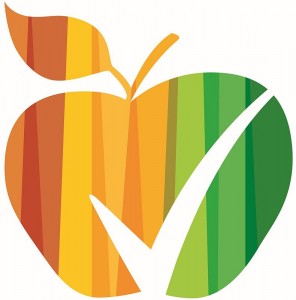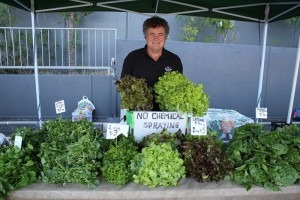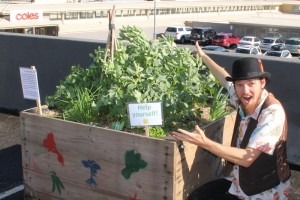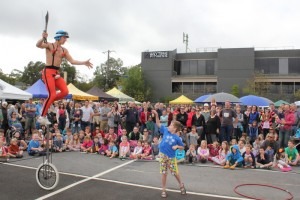Your local farmers’ markets
The first farmers’ market started in Victoria in 1998 in the Yarra Valley. There are now around 200 farmers’ markets across Australia, around a third of them in Victoria.1 8 of these can be described as local to us:
| Market | Suburb | Day | Time | VFMA accredited?2 |
| Abbotsford | Abbotsford | 2nd Saturday | 8am – 1pm | |
| Alphington | Alphington | Every Sunday | 9am – 1pm | yes |
| Carlton | Carlton North | Every Saturday | 8am – 1pm | yes |
| Coburg | Coburg | Every Saturday | 8am – 1pm | yes |
| Eltham | Eltham | Every Sunday | 8am – 12.30pm | yes |
| Heathmont | Heathmont | 4th Sunday | 9am – 2pm | |
| Whitehorse | Nunawading | 2nd Sunday | 8am – 1pm | |
| Yarra Valley | Coldstream | 3rd Sunday | 9am – 1.30pm |
Loading map...

So:
- What is a farmers’ market?
- Why should you consider going to a farmers’ market?
- What are the problems with current farmer’s markets?
What is a farmers’ market?
There is no legal definition of “farmers’ market” in Australia. So, any market can call itself a farmers’ market if they wish. But, in practice, there are three characteristics that define them:
- Restricted to food and food-related produce: It is generally agreed that farmers’ markets should be strictly restricted to food-related (and, sometimes, plant-related) stalls, and it is this which distinguishes farmers’ markets from community and craft markets.
- No re-sellers: the stallholders should only be selling food that they have grown/made themselves.
- Local stallholders: the stallholders should be ‘local’. Different people have different views about what ‘local’ should mean but, in Victoria at least, it usually means from within the State.
 In Victoria, these three rules have been formalised by The Victorian Farmers’ Market Association (VFMA). Any stallholder who abides by the three rules can apply to be ‘accredited’ and any market where 75% or more of its stallholders are accredited can itself apply to be accredited. Around half of the 80 or so farmer’s markets in Victoria are formally accredited by the VFMA, including Eltham and Hurstbridge. Most farmers’ markets are run by voluntary organisations who operate in the suburb in which the market is located. Most farmers’ markets happen once a month, on a Saturday or Sunday morning, and have between 25 and 50 stalls. Some farmers’ markets give preference to ‘very local’ stallholders. For example, at Eltham, around half of the stallholders are from the Nillumbik local authority area or its immediately bordering authority areas.
In Victoria, these three rules have been formalised by The Victorian Farmers’ Market Association (VFMA). Any stallholder who abides by the three rules can apply to be ‘accredited’ and any market where 75% or more of its stallholders are accredited can itself apply to be accredited. Around half of the 80 or so farmer’s markets in Victoria are formally accredited by the VFMA, including Eltham and Hurstbridge. Most farmers’ markets are run by voluntary organisations who operate in the suburb in which the market is located. Most farmers’ markets happen once a month, on a Saturday or Sunday morning, and have between 25 and 50 stalls. Some farmers’ markets give preference to ‘very local’ stallholders. For example, at Eltham, around half of the stallholders are from the Nillumbik local authority area or its immediately bordering authority areas.
 Why should you consider going to a farmers’ market?
Why should you consider going to a farmers’ market?
According to a 2010 Parliamentary Inquiry3:
- Fresh food (i.e. fresher than that available from other sources): clearly the leading reason.
- Chemical-free food: most local farmers use few, if any, chemicals or pesticides and many are certified organic.
- Food from a known source: you know who grew/made it and you can talk with them (and many stallholders like chatting!).
 Reduced packaging: in most cases, the food comes unpackaged and you put it directly into your shopping bag. Note that the transport implications of local food are more controversial.
Reduced packaging: in most cases, the food comes unpackaged and you put it directly into your shopping bag. Note that the transport implications of local food are more controversial.- Supporting local food producers: a stronger reason at some markets than others.
In my experience, however, there are additional social reasons why people go to their local farmers’ market. Quite simply, it is an enjoyable day out: you will probably meet some other people that you know, you will see (and may be able to taste) some foods that you don’t usually eat, you can talk to the stallholders, there may be other food-related activities (food swaps, cooking demonstrations, etc), and there is often live music or some other form of entertainment.
 What are the problems with current farmer’s markets?
What are the problems with current farmer’s markets?
As most markets are monthly, but most fresh food only lasts for a week or two, it is not clear how the market should fit in with the public’s general patterns of food shopping. Should they visit a different market each week for their fruit and veggies, go to normal shops 3 weeks in 4, or have a different diet 1 week in 4? Clearly, it would be desirable for a market to be weekly but this is not easy to achieve: it is financially problematic, it is difficult to get the stallholders, and it puts a large burden on the (usually voluntary) organisers.
Because the farmers and food makers at farmers’ market are always operating on a small scale, they do not have the economies of scale of largescale farming and factories and their food is typically not cheap. Related to this, the clientele is sometimes predominantly middle class. But fresh food and farmers’ markets should be for everyone. In the USA, they have addressed this issue, at least in some of their urban markets, by philanthropic schemes to subsidise the prices for some people, but this has not yet happened (as far as I am aware) anywhere in Australia.
Whilst it is relatively easy for farmers’ market to break even on an ongoing basis, they do require a substantial amount of upfront capital. At Eltham, for example, we spent almost $30,000 on equipment, marketing, signage, etc. Two-thirds of this money was provided by generous State Government grants but this grant scheme has now ceased.
* * * * *
In conclusion: if you have never been to a farmers’ market, you really should make an exploratory visit. For most of you, there will be one near you.
Footnotes
1. The Australian Farmers’ Market Association website.
2. Accredited by the Victorian Farmers’ Market Association based on the criteria discussed in the article.
3. Inquiry into Farmers’ Markets, Outer Suburban/Interface Services and Development Committee, Parliament of Victoria, 2010.

Can the St Kilda veg out farmers market be added? It’s the first Saturday of every month. https://vegoutfarmersmarket.org.au. Thanks.
Thanks for your comment, Victoria. However, we strictly keep all the listings on this website to the North East of Melbourne.